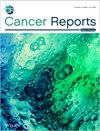Bioinformatics Analysis of the Expression and Prognostic Significance of Transcription Factor YY1 in Gastric Cancer
Abstract
Background
Emerging evidence indicates that the transcription factor Yin Yang 1 (YY1) plays a critical role in the carcinogenesis and progression of various human malignancies. YY1 is highly expressed in gastric cancer (GC), raising interest in its role in GC.
Aims
This study aims to analyze the role of YY1 in gastric cancer, investigate its effect on the tumor microenvironment, and assess its potential as a prognostic marker.
Methods and Results
Transcriptomic data and clinical information from GC patients were obtained from the TCGA and UCSC databases. YY1 expression was analyzed using the R “limma” package. Gene ontology (GO) enrichment and Kyoto Encyclopedia of Genes and Genomes (KEGG) pathway analyses were performed with the online tool clusterProfiler. The relationship between YY1 expression levels and the tumor microenvironment was examined in different risk groups of GC patients. Additionally, YY1-positive staining in 26 clinical GC samples was measured using ImageJ software. Co-expression analysis was used to identify prognostic genes associated with YY1, and a prognostic risk model was built and optimized.
Results showed that YY1 was significantly overexpressed in 415 GC (p < 0.001) and was associated with poorer survival outcomes (p = 0.043). GO and KEGG showed that YY1 was involved in key biological processes of the disease. Higher YY1 expression was correlated with lower stromal and immune cell content in the tumor microenvironment. Immunohistochemical staining confirmed YY1 overexpression in GC tissues compared to normal tissues (p = 0.0293). Positive correlations were observed between YY1 and the genes MTA1, TTL15, HNRNPU, WDR20, and PPP4R3A. The prognostic model, which included genes significantly associated with YY1 (risk score AUC = 0.690), predicted patient survival better than other clinical variables.
Conclusion
These findings suggest that YY1 plays an important role in the development of GC. Targeting the YY1 pathway may be a potential treatment strategy for GC.


 求助内容:
求助内容: 应助结果提醒方式:
应助结果提醒方式:


